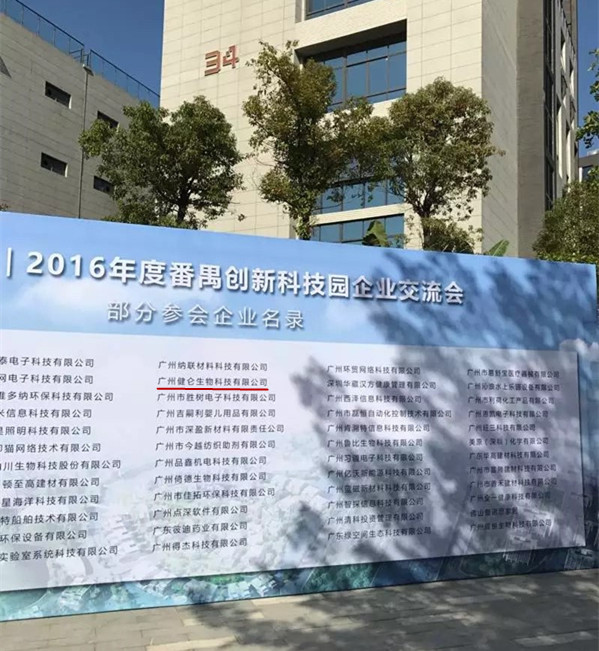- 产品描述
布鲁氏菌IgG免疫荧光试剂盒
Brucella IgG IFA Kit
广州健仑生物科技有限公司
主要用途:用于检测狗血清中的布鲁氏菌IgG抗体
产品规格:12 孔/张,10 张/盒
主要产品包括:包柔氏螺旋体菌、布鲁氏菌、贝纳特氏立克次体、土伦杆菌、钩端螺旋体、新型立克次体、恙虫病、立克次体、果氏巴贝西虫、马焦虫、牛焦虫、利什曼虫、新包虫、弓形虫、猫流感病毒、猫冠状病毒、猫疱疹病毒、犬瘟病毒、犬细小病毒等病原微生物的 IFA、MIF、ELISA试剂。
布鲁氏菌IgG免疫荧光试剂盒
我司还提供其它进口或国产试剂盒:登革热、疟疾、西尼罗河、立克次体、无形体、蜱虫、恙虫、利什曼原虫、RK39、汉坦病毒、深林脑炎、流感、A链球菌、合胞病毒、腮病毒、乙脑、寨卡、黄热病、基孔肯雅热、克锥虫病、违禁品滥用、肺炎球菌、军团菌、化妆品检测、食品安全检测等试剂盒以及日本生研细菌分型诊断血清、德国SiFin诊断血清、丹麦SSI诊断血清等产品。
欢迎咨询
欢迎咨询2042552662

| JL-FL38 | parkeri立克次体IgG ELISA | R. parkeri IgG ELISA Kit |
| JL-FL39 | montanensis立克次体IgG ELISA | R. montanensis IgG ELISA Kit |
| JL-FL40 | EB病毒衣壳IgG免疫荧光玻片试剂盒 | EBV Viral Capsid IgG IFA Kit |
| JL-FL41 | EB病毒衣壳IgM免疫荧光玻片试剂盒 | EBV Viral Capsid IgM IFA Kit |
| JL-FL42 | EB病毒早期抗原IgG免疫荧光玻片试剂盒 | EBV Early Antigens IgG IFA Kit |
| JL-FL43 | 钩端螺旋体IgG免疫荧光试剂盒 | Leptospira IgG IFA Kit |
| JL-FL44 | 钩端螺旋体IgM免疫荧光试剂盒 | Leptospira IgM IFA Kit |
| JL-FL45 | 果氏巴贝西虫免疫荧光玻片 | Babesia microti IFA Substrate slide |
| JL-FL46 | 果氏巴贝西虫IgG免疫荧光试剂盒 | Babesia microti IgG IFA Kit |
| JL-FL47 | 果氏巴贝西虫IgM免疫荧光试剂盒 | Babesia microti IgM IFA Kit |
| JL-FL48 | 埃立克体IgG微量免疫荧光试剂盒 | Ehrlichia canis Canine IFA IgG Kit |
| JL-FL49 | 包柔氏螺旋体菌IgG免疫荧光试剂盒 | Borrelia IgG IFA Kit |
| JL-FL50 | Brucella IgG IFA Kit | |
| JL-FL51 | 里氏新立克次体IgG免疫荧光试剂盒 | Neorickettsia risticii IgG IFA Kit |
| JL-FL52 | 弓形虫IgG免疫荧光试剂盒(检测猫) | Toxoplasma IFA Feline IgG Kit |
| JL-FL53 | 弓形虫IgG免疫荧光试剂盒(检测狗) | Toxoplasma IFA Canine IgG Kit |
二维码扫一扫
【公司名称】 广州健仑生物科技有限公司
【】 杨永汉
【】
【腾讯 】 2042552662
【公司地址】 广州清华科技园创新基地番禺石楼镇创启路63号二期2幢101-3室
【企业文化】


zui近剑桥大学的Evgeny Zatulovskiy 和 Rob Kay揭示网柱菌属细胞,是研究细胞移动的通俗模式生物,能够同时利用这两种动力,提升它们也许相互干扰的问题。
为了解决这一问题,沃威克大学的Richard Tyson 和Till Bretschneider 开发了一项新计算机算法能够追踪大量的两种泡和网柱菌属细胞的显微镜电影中的伪突起。在目前的研究中,泡和伪突起在趋化作用期间如何合作,他们证明细胞形状的影响怎样影响这些动力相互作用。当缓慢的伪突起延伸它们的变形细胞膜创造一种内部弯曲区域。
在健康细胞中,TRAP-1是代谢的重要调节蛋白,并且已显示出在调节线粒体能量生产中发挥的重要作用。在肿瘤细胞的线粒体中,TRAP-1是过量的。
Wistar研究所科学家创造了TRAP-1基因敲除小鼠,利用其来进行药物Gamitrinib(其可靶定肿瘤细胞线粒体中的蛋白质)的研究。TRAP-1是热休克90(HSP90)蛋白家族的一成员,肿瘤利用HSP90蛋白如TRAP-1,以帮助在治疗下生存。
在肿瘤中,TRAP-1的缺失是有重大后果的,会触发包括代谢问题的灾难性缺陷,zui终导致肿瘤细胞死亡。然而,一开始就缺少TRAP-1的小鼠在子宫内有三周时间来补偿此蛋白质的缺失。
研究人员发现,在他们的基因敲除小鼠中,TRAP-1的缺失会导致线粒体蛋白错误折叠,然后触发代偿性反应,导致细胞消耗更多的氧气和代谢更多的糖。这将导致基因敲除小鼠线粒体产生失调水平的ATP。
线粒体活性的增加实际上会适度刺激氧化应激(自由基损伤)和相关的DNA损伤。虽然DNA损伤似乎不利于长寿养生,但低程度DNA损伤实际上减少了细胞的增殖,减慢生长速度,使细胞的自然修复机制生效。
Recently, Evgeny Zatulovskiy and Rob Kay of Cambridge University revealed that the cells of the genus Mycena, a popular model organism for studying the movement of cells, could exploit both of these motivations to enhance their mutual interference.
To tackle this problem, Richard Tyson and Till Bretschneider of Warwick University have developed a new computer algorithm that can track artifacts in a large number of microscopic films of both Bubble and Mycena cells. In the present study, how bubbles and pseudopromas work together during chemotaxis demonstrate how the effects of cell shape affect these kinetic interactions. When slow pseudoprojections extend their deformable cell membranes creating an inner curved area.
In healthy cells, TRAP-1 is an important regulatory protein of metabolism and has been shown to play an important role in the regulation of mitochondrial energy production. TRAP-1 is excessive in tumor cell mitochondria.
Wistar Institute scientists have created TRAP-1 knockout mice that allow them to study the drug Gamitrinib, which targets proteins in tumor cell mitochondria. TRAP-1 is a member of the heat shock 90 (HSP90) protein family that utilizes HSP90 proteins such as TRAP-1 to help survive the treatment.
In tumors, the absence of TRAP-1 has major consequences, triggering catastrophic defects that include metabolic problems that eventually lead to the death of tumor cells. However, mice lacking TRAP-1 initially had three weeks in the uterus to compensate for the protein loss.
The researchers found that in their knockout mice, the absence of TRAP-1 causes misfolding of mitochondrial proteins and triggers compensatory reactions that cause cells to consume more oxygen and metabolize more sugar. This will result in knockout of mitochondrial ATP levels in mice.
Increased mitochondrial activity can actually moderay stimulate oxidative stress (free radical damage) and related DNA damage. Although DNA damage seems to be detrimental to longevity, low levels of DNA damage actually reduce cell proliferation, slow the rate of growth and allow the cell's natural repair mechanism to work.



